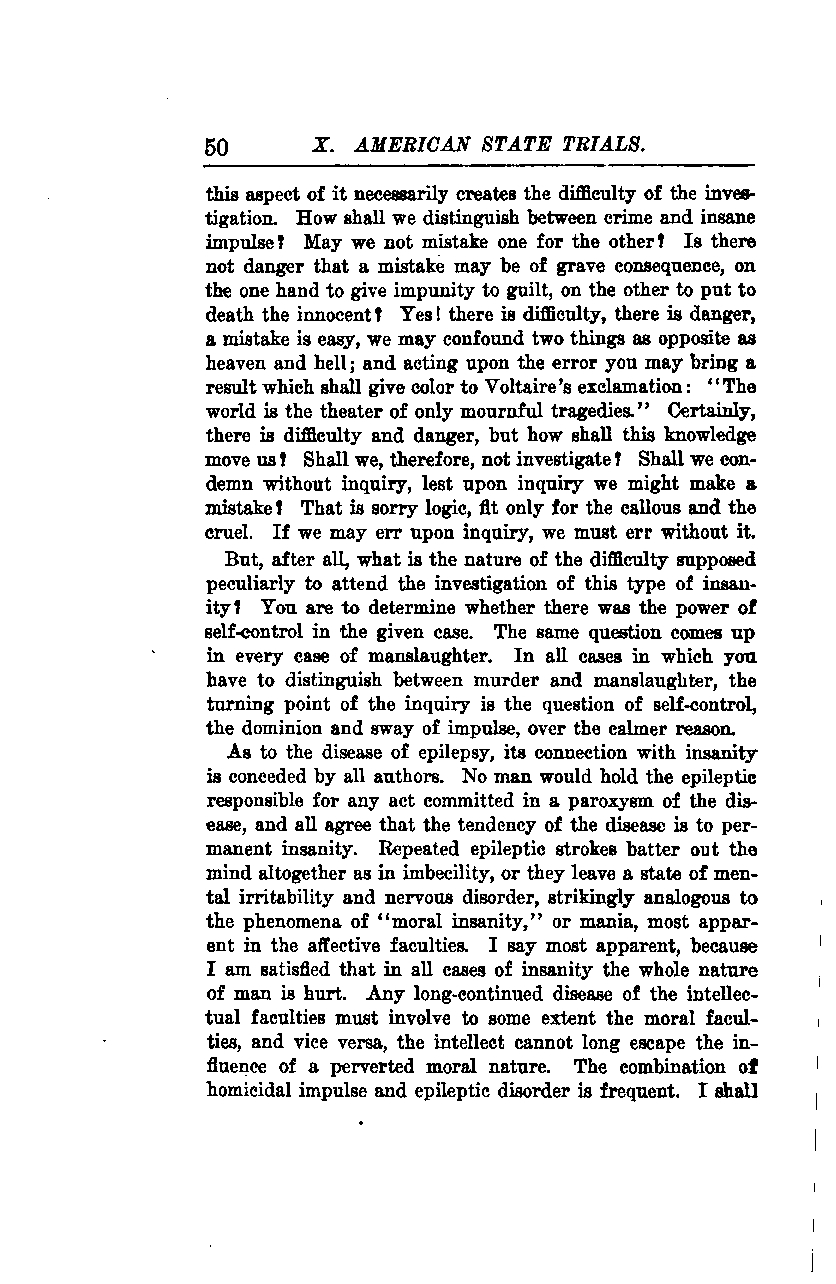
Here is the translated text as follows:
50 X. AMERICAN STATE TRIALS.
This aspect of it necessarily creates the difficulty of the investigation. How shall we distinguish between crime and insane impulse? May we not mistake one for the other? Is there not danger that a mistake may be of grave consequence, on the one hand to give impunity to guilt, on the other to put to death the innocent? Yes! There is difficulty, there is danger, a mistake is easy; we may confound two things as opposite as heaven and hell. Acting upon the error, you may bring a result which shall give color to Voltaire's exclamation: "The world is the theater of only mournful tragedies." Certainly, there is difficulty and danger, but how shall this knowledge move us? Shall we, therefore, not investigate? Shall we condemn without inquiry, lest upon inquiry we might make a mistake? That is sorry logic, fit only for the callous and the cruel. If we may err upon inquiry, we must err without it.
But, after all, what is the nature of the difficulty supposed peculiarly to attend the investigation of this type of insanity? You are to determine whether there was the power of self-control in the given case. The same question comes up in every case of manslaughter. In all cases in which you have to distinguish between murder and manslaughter, the turning point of the inquiry is the question of self-control, the dominion and sway of impulse over the calmer reason.
As to the disease of epilepsy, its connection with insanity is conceded by all authors. No man would hold the epileptic responsible for any act committed in a paroxysm of the disease, and all agree that the tendency of the disease is to permanent insanity. Repeated epileptic strokes batter out the mind altogether, as in imbecility, or they leave a state of mental irritability and nervous disorder, strikingly analogous to the phenomena of "moral insanity," or mania, most apparent in the affective faculties. I say most apparent, because I am satisfied that in all cases of insanity the whole nature of man is hurt. Any long-continued disease of the intellectual faculties must involve to some extent the moral faculties, and vice versa; the intellect cannot long escape the influence of a perverted moral nature. The combination of homicidal impulse and epileptic disorder is frequent. I shall...